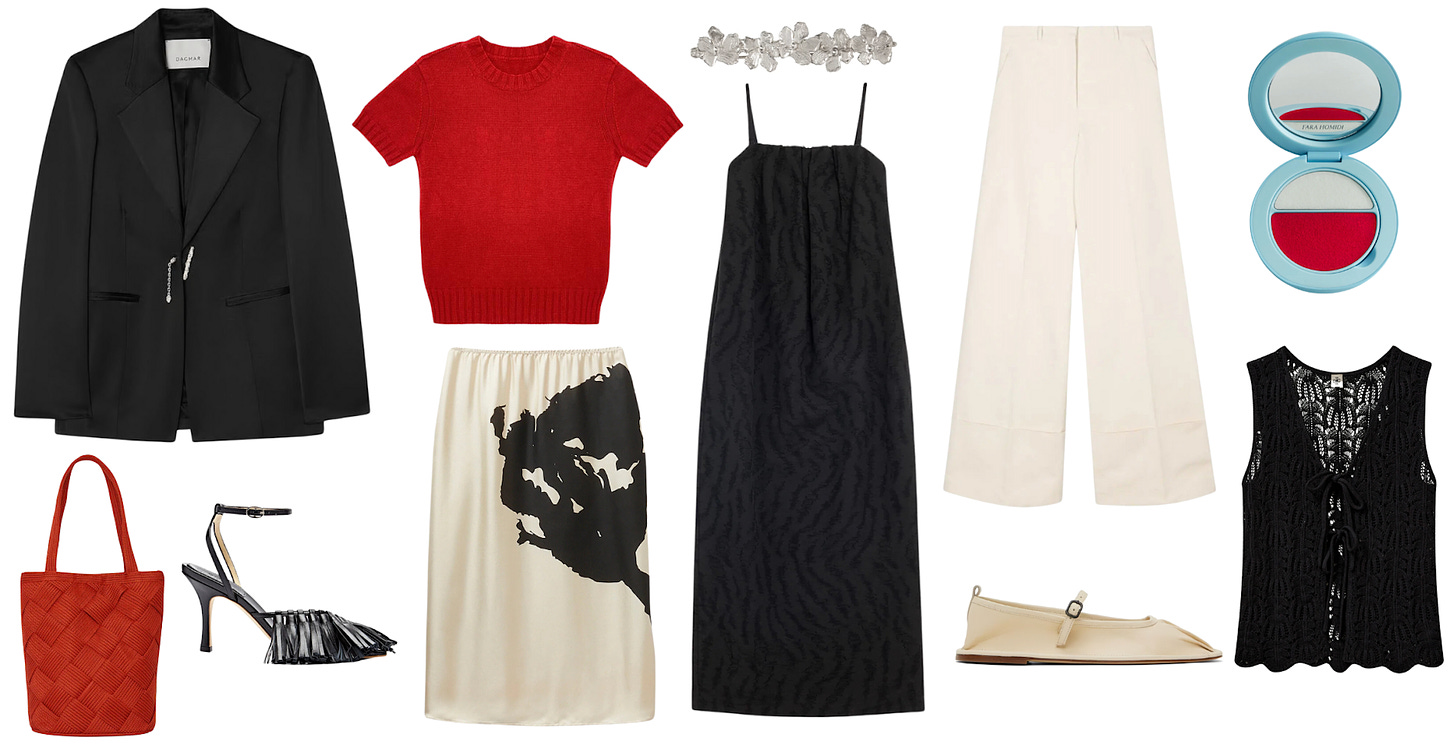The way I see it, there are three, non-exclusive, ways to shop mindfully. The first is shopping in a way that’s environmentally friendly. It’s more straightforward than we’re led to believe and can be achieved through shopping significantly less and/or shopping second-hand. The second is shopping ethically. This is more complex since most brands operate with zero transparency and lies are being told frequently. Very frequently. The third is shopping small. Shopping small is also somewhat complicated. It is easier to identify a brand as small (low follower count, limited wholesale distribution, bootstrapped founder, etc.) than it is to identify a brand as authentically ethical. But smaller brands can be difficult to find - precisely because they don’t have large marketing budgets to ensure they get visibility - and they often have a limited selection and size range - because producing a lot costs a lot. They also have shipping and returns terms that, because we’re conditioned to expect same day free delivery, seem to us really inflexible.
Chances are if you prioritise one of these, you’ll spontaneously be prioritising all three. Young brands tend to be more conscious of their environmental and human impact. Brands who care about operating ethically are often the same ones who care about reducing their environmental footprint.
They say you vote with your money and choosing to shop small, or not, is almost political. The impact of a single purchase is so great for a small brand it could determine whether it survives another month and whether the founder will pay off their credit card bill. There’s no celebration at the register when you buy something from Zara or Gucci.
The irony is, shopping from small brands often means getting better value. Young brands tend to be more conscious, not just of their impact, but of their customers. Seasoned founders often talk about the idealistic naivety of their beginnings. Early days margins are squeezed to bring customers the best possible product before the costly realities of keeping a business afloat kick in. I speak from firsthand experience. Today, most of my network and many of my closest friends are small brand founders and I’m constantly privy to decisions being made for the sake of a product’s integrity or the benefit of customers. I think of one of them whose brand operates on minuscule margins because she ‘feels bad’ for charging a high price for her top-end quality products that are manufactured in Europe in the same factory as more established brands who charge twice or three times more while laughing their way to the bank.
Despite it all, convenience makes it hard to stay away. Amazon doesn’t need my patronage but I still shop on there reluctantly on a weekly basis if only for audio and e-books. Shoppers who prioritise quality over quantity already spend more on each piece and paying for shipping and import duties on top can be discouraging. Small brands only charge for them because their unit cost (fabrics, manufacturing, packaging, shipping, etc.) is three or four times that of brands who operate on a large scale. I can’t always afford the shipping costs and duties so I try to shop from local brands (I’m lucky that the UK doesn’t lack talented independent designers) and when shopping from my go-to retailers (typically Net-A-Porter or SSENSE), I try to purchase from brands that are new to the site and I have never heard of before.
As you know, this newsletter is big on discovery. You guys often tell me that you value finding new brands in each shopping edit. In addition to including a few small brands each week, I want to publish a Small Brand edition of the 12-piece capsule every season. Today’s is a selection of Spring pieces from favourite small brands. I would love to hear about any local young brands you’ve come across - let me know in the comments!
I hope you have a sunny Spring week. Love, L x
This newsletter does not include affiliate links.
Small Brands Capsule #1







